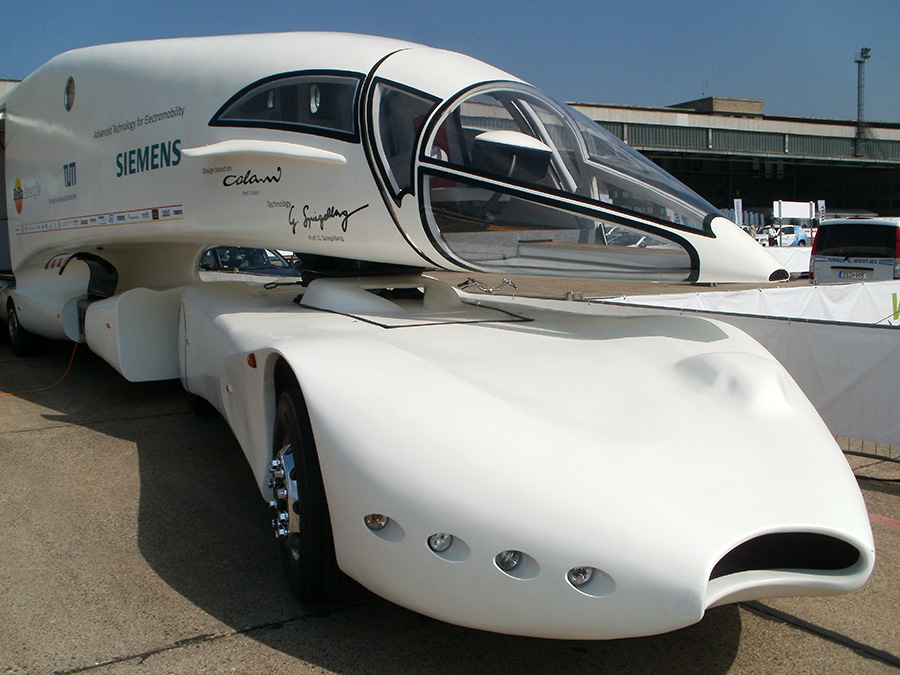"Innotruck" demonstrates radical, holistic approach to electromobility
A vehicle for rethinking mobility rolls into Hannover Messe

What the Diesel Reloaded researchers envision goes far beyond a shift from fossil fuel-burning vehicles to electric alternatives. With regard to energy, they see the vehicle both as a small-scale "smart grid" that can be optimized for cost reduction and as a vital element in stabilizing regional-scale energy networks that will rely increasingly on fluctuating input from renewable sources. Rethinking the human-machine interface, the researchers see a path toward making the vehicle a "mobility partner," with displays and controls that adapt not only to the driver's individual capabilities and typical behavior, but also to changing conditions such as traffic and the driver's alertness. These transformations in energy management and the human-machine interface are supported by a further paradigm shift: redefining a vehicle as an integrated information and communication system with a modular, scalable architecture. With centralized computing and plug-and-play applications, the vehicle's system architecture allows for straightforward integration of new capabilities such as car-to-car and car-to-infrastructure communications to help optimize traffic flow and safety.
The main lines of research are being pursued by doctoral candidates Claudia Buitkamp (drive train and energy optimization), Ljubo Mercep (human-machine interface), and Hauke Stähle (system architecture). These lines meet and intertwine in the so-called Innotruck, which serves as both a research testbed and a demonstration vehicle. Over time, more and more of the team's ideas are being tested and implemented in the Innotruck; it is on its way to having a permit for drive-by-wire operation on public roads.
As members of TUM's International Graduate School of Science and Engineering, the doctoral candidates receive additional scientific support from Computer Science Prof. Alois Knoll and Mechanical Engineering Prof. Markus Lienkamp. "Traditional education tends to prepare engineers for the engineering of the past," project leader Spiegelberg says. "This approach prepares them for the future. There is a cycle of knowledge generation, transfer, and application at work here," he adds, represented by TUM (science), Siemens (translational research), and application-oriented partner companies such as BeBa Energie, an engineering firm that specializes in renewable energy systems.
According to Spiegelberg, their research anticipates and addresses "the megatrends of environmental care, urbanization, and demographics." Caring for the environment has inherent value but also implies major economic costs, he explains. Yet environmentally friendly changes in infrastructure, products, and services can pay for themselves if they also, for example, provide new options that enable members of an aging population to remain independent and mobile despite changes in their physical and cognitive abilities.
This research is supported, through TUM-IAS and IGSSE, by the Excellence Initiative of the German federal and state governments. Doctoral candidates are supported by Siemens.
Multimedia:
http://mediatum.ub.tum.de/node?id=1100670
Innotruck project website:
http://www.innotruck.de/en/project-team.html
Technical University of Munich
Corporate Communications Center
- Dr. Andreas Battenberg
- battenberg@zv.tum.de
- presse@tum.de
- Teamwebsite